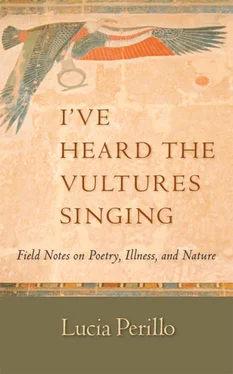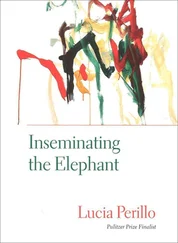In college I had a friend named Tom who wore a similar black robe that his sister sewed for him because he’d taken the notion that if he wore a garment that almost completely covered him he could almost completely disappear. One afternoon, when he went walking to the outskirts of our small Canadian village, a ring of children gathered around him, as if they’d been swept up from the twilight itself. And even though he was a tall, imposing man, they started chanting, “Weirdo! Weirdo!” until he got scared and had to run. Of course, the robe also made him ultra-visible, though I’m not sure that that wasn’t what he’d intended. Young people generally don’t want to blend in.
This was the 1970s, a decade when we quoted Henry David Thoreau: Beware any enterprise that requires new clothes , which we took for a warning about the superficiality of the world. After collage I intended to head off to my own private Walden Pond, some remote place where I’d wear flannel or go naked, depending on the season. In those days I thought the obsession with self-presentation was a retrograde stage in human evolution, soon to pass. I fully expected that, by my middle age, the loan officer at the bank might be wearing a pair of farmer overalls.
(But no — he can have an earring and a well-groomed ponytail, but the overalls do not qualify as an adequate garment, not even on the dress-down Fridays.)
Now I see two flaws to my youthful thinking: my rags were themselves a fashion trend. I spent hours embroidering the patches on my jeans, and the sophistication of this needlework established a hierarchy of cool among my friends. Before I knew it, punk came into style, ripped clothes still the uniform, though you could no longer claim to be naïve about there being no artifice in your making of the image you presented to the world. People started paying a lot of money for old jeans, a status item. I stopped wearing them because I still wanted to present myself as anti-status, anti-money.
Flaw two: even the duck has breeding plumage. So there must be genuine biological imperatives that drive us to present ourselves in an attractive light, however I chastise my friends for choosing the beauties on the computer dating website. (When it comes to computer dating, I get most of my information from my wheelchair salesman, an actor whose head is covered with attractive blond tresses and whose palsied arm I never noticed until he showed me how his fingers spasmed when he tried to grip his pen.
“I’d rather kill myself than go back to dating,” I say.
He offers helpfully: “There are computer dating sites for people in wheelchairs.”
“That’s just it!” I say. “I’d kill myself if I had to date me.”)
I’ve read somewhere that a famous philosopher — Wittgenstein maybe — considered the objective self/subjective self conundrum, the inside view versus the outside one, for a brief while before concluding that the dilemma was immature and unsolvable.
My distaste for seeing my objective self — for having to have an objective self at all — preceded illness, so it’s not entirely a manifestation of my fear of becoming disabled. It first occurred back when I headed into my pubescence, when I took up the hems of my turquoise polyester culottes, and voilà: hot pants. I was feeling pretty good about myself for the brainstorm of this transformation, until a boy made fun of me as I walked the trail through the woods that led me home from school. Furthermore, he pointed out that my shoes were made of cardboard. This I’d never noticed; in fact, I was quite proud of my two-tone, blue-gray wingtips with the stacked heel. But the edge of a wing was curling back, and sure enough I saw it: cardboard.
The 1970s were a decade filled with calamities of self-presentation, as the dashing young Elvis collided into the fat old one in the karate suit. Prior to my adolescence, I knew only my subjective body, which knew the secret handholds in the bark of every local tree. The body that rode no-handed on the hand-me-down bicycle and did not see itself doing so: these memories occupy the slots in my brain that I associate most with happiness. By junior high, they were over. Right around the time when I began to menstruate, when I went off to YMCA camp for a month and sat bleeding on the shore of the lake for weeks. I gained an external idea of myself but lost confidence in my body as a dependable vehicle, whose purpose had nothing to do with reproduction but only transport from place to place.
This was what made me start hiking alone, in the suburban woodlots at first, where I could be all body, all subject — something not seen. A decade later I began to love walking into the vast landscapes of the West, where you can almost hear the whooshing as the land gets large, and the body dwindles to a matchstick that becomes your one survival tool.
In his backyard in Camden, New Jersey, a place he transformed into a wilderness that he called Timber Creek, Walt Whitman wrote: “There come moods when these clothes of ours are not only irksome to wear, but are themselves indecent.” He was only in his late fifties, yet he’d become partially paralyzed, in spite of his cunningly orchestrated public persona as the vigorous avatar of America in its entirety. To reclaim this former self, he created a ritual in this, his old-ish age: first he stripped and covered himself in mud, then he rinsed his body and scrubbed it pink before rinsing it again. Then he performed what he called “vocalism” by singing and reciting poems before long bouts of wrestling naked with the trees. This rejuvenation through nature worked, sort of; at least it gave him enough oomph to stagger through a few more years as the bard of the New World.
It’s a common equation for poets to make, from nudity to purity. Billy Collins lampooned this belief in a poem that recounts the rituals one of his narrators goes through before sitting down to write. First the tea is made and then the clothes come off, and then:
. . I remove my flesh and hang it over a chair.
I slide it off my bones like a silken garment.
I do this so that what I write will be pure,
completely rinsed of the carnal,
uncontaminated by the preoccupations of the body.
This is a run-up to the climactic gag of the poem (“I should mention that sometimes I leave my penis on”), but it also contains a serious possibility that troubles me, how the body will contaminate whatever it’s making if allowed to pester the writer with its pings and squawks.
In fact, I have become something of a nudist these days — at least a nude-ish nudist. Since my shins sizzle at the rasp of even the lightest silk, they go naked in all seasons. On my feet I wear boots made of sheep-fur because socks have come to feel like thorns. Through winter sleet I wear these boots, and shorts, cutting a figure unlike anyone I know except a schizophrenic woman who calls herself “the ghost of Jim Morrison.” She too goes bare-legged, though she also favors headbands and ponchos that dip to a triangle below her waist. She looked strange until a few years ago, when a tidal wave of ponchos rode back into style.
In addition to my two “good” pairs of shorts, one of which, the khaki pair, I just realized the other day was badly stained, I have a collection of others that my husband has passed down to me when they became too threadbare for him to be willing to wear. I also have a few flannel shirts that belonged to my dead father, and though they too are now unraveling I can’t bear to throw them out. I have some “normal” shirts of my own, but because I push myself in a wheelchair their sleeves are frayed at the wrist. And because I sit almost all my waking hours, some flab often pushes its way to light above the waistband of my shorts.
My paranoia leaves me feeling that I appear abnormal, to my mind absurd — with this look that I have not wrought or sought. I suppose I could “work on” the image I present to the world, but this would require too much collusion with my objective self. That person is free to amble around in the world, whoever she is, but I will not traffic with her at all. No thank you, I’ll stay here inside my head where the hearth is always lit.
Читать дальше











![Various - Birds and Nature, Vol. 12 No. 5 [December 1902]](/books/745517/various-birds-and-nature-vol-12-no-5-december-thumb.webp)
![Various - Birds and Nature Vol. 11 No. 2 [February 1902]](/books/745533/various-birds-and-nature-vol-11-no-2-february-1-thumb.webp)